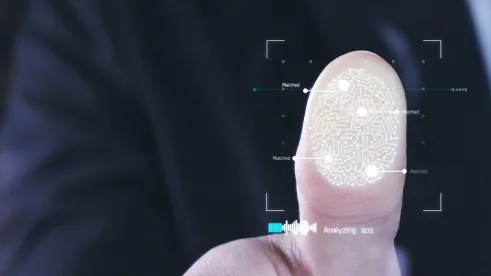Last week a federal court in Illinois granted preliminary approval to a $92 million settlement reached in the TikTok multidistrict litigation (“MDL”), over objections that had been raised in March concerning the basis and terms of settlement. Read on to learn more.
As readers of CPW already know, last year the Panel on Multidistrict Litigation consolidated several class action cases filed against TikTok Inc. (“TikTok”). Over time, the MDL expanded to include over 20 putative class actions against TikTok and other Defendants. The consolidated amended class action complaint filed in the cases in December 2020 sought to certify a putative nationwide subclass of TikTok app users and an Illinois subclass based on alleged violations of the Illinois Biometric Information Privacy Act (“BIPA”).
Plaintiffs alleged that TikTok unlawfully collected their biometric and other personal data in violation of state and federal privacy laws. They also asserted that TikTok and the other Defendants exceeded the scope of their authorized access to class members’ electronic devices (notwithstanding certain terms in TikTok’s terms of service). In addition to BIPA, the consolidated pleadings alleged claims arising under (1) the Computer Fraud and Abuse Act; (2) the Video Privacy Protection Act; (3) California’s Comprehensive Computer Data Access and Fraud Act; and (4) California’s Unfair Competition Law, among other California and consumer protection law claims.
Under the terms of the proposed settlement, Defendants agreed to fund a $92 million escrow account for the benefit of Settlement Class members. As outlined in the Order providing for preliminary approval of the settlement, “[a]fter deducting all Court-approved settlement-related costs and fees, including reasonable attorneys’ fees, the fund would be divided into a total number of pro rata shares equal to the sum of (1) the number of Nationwide Class members (an estimated 89 million persons) who submit a valid claim and (2) five times the number of Illinois Subclass members (an estimated 1.4 million persons, all members of the Nationwide Class as well) who submit a valid claim.”
In addition to monetary relief to the settlement class, the proposed settlement also provides for broad injunctive relief. This included, among other commitments:
-
Limits on the Storage and Transmission of Data Outside the U.S.: Defendants agreed to abstain from using the TikTok App to collect or store a domestic user’s biometric data and geolocation information; from storing or transmitting a domestic user’s data outside of the U.S.; and from pre-uploading domestic user-generated content; unless expressly disclosed in TikTok’s privacy policy and in compliance with applicable law.
-
Data Deletion and Employee Training: Defendants agreed to delete all pre-uploaded user-generated content collected from domestic users who did not ‘save’ or ‘post’ the content, and would require a newly designed annual training program for their employees and contractors on compliance with data privacy laws.
-
Auditing for Three Years Following the Settlement: Defendants agreed to hire a third-party firm at their own expense to review their data privacy training for a period of three years and to provide a written verification of that review.
In approving the settlement, the Court overruled objections raised concerning whether it was fair, reasonable and adequate, among other concerns. This included:
-
Objections contending that the settlement agreement is not fair, reasonable, and adequate, because it does not reflect the net expected value of continued litigation to the class, and that the proposed notice plan is deficient.
-
Objections that the settlement does not account for conflicts between minor and non-minor class members and that the proposed release is overly broad vis-à-vis the proposed settlement in a somewhat related case pending in this judicial district.
-
Objections that the settlement’s proposed opt-out procedure is so onerous as to violate due process and the Federal Arbitration Act
In granting preliminary approval of the settlement, the Court found that Defendants have raised “many colorable defenses” should the litigation continue, including that “class members are subject to the class action waiver and arbitration agreements incorporated in TikTok’s terms of service.” The Court additionally found that “Defendants’ position that class members consented to the alleged misconduct by accepting TikTok’s terms of service poses an obstacle for Plaintiffs’ remaining claims as well.” Finally, the Court also concluded that “[a]nother set of litigation risks derive from the difficulty of proving damages for Plaintiffs’ claims”—including the requirement that Plaintiffs and Class Members prove “actual damages” in support of their claims if litigation should continue.
Although preliminary approval of the settlement was withheld in March, the Court’s change in position last week represents a significant milestone in reaching an (eventual) resolution in the proceedings. Stay tuned for whether final approval of settlement is forthcoming.




 />i
/>i
